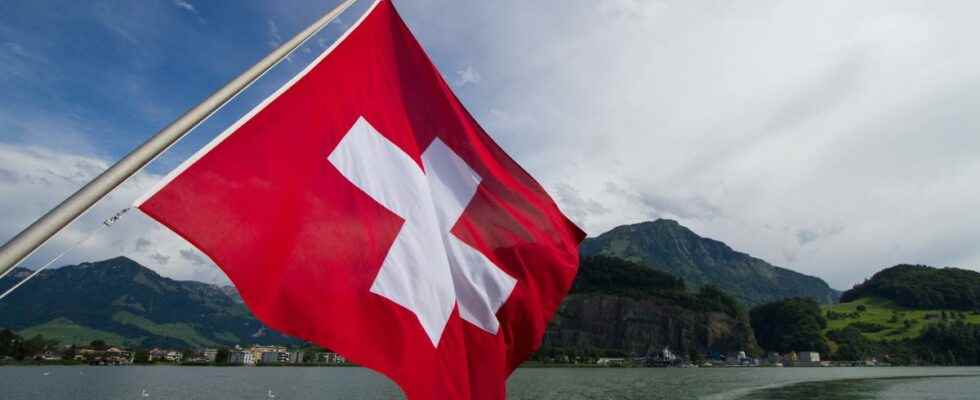The rise in prices in the Confederation amounted to only 3.5% in August, well below the countries of the euro zone.
In Switzerland, inflation is increasing but remains far from the high levels of its European neighbours. The National Statistics Office (OFS) indicates that inflation reached 3.5% over one year in August in the Swiss Confederation. For its part, the statistical office of the European Union, Eurostat, establishes inflation over the same period at 9.1% for the countries of the euro zone. An absolute record which therefore widens a gap of 5.6 points with the Swiss data. Same observation for underlying inflation, which excludes fresh and seasonal products, energy and fuels, which by nature have more volatile prices: 2% increase for Switzerland against 4.3% in the euro zone.
Read alsoInflation affects consumption
This Swiss exception can first be explained by the country’s energy mix. With 60% hydraulic energy and 30% nuclear energy, Switzerland is only 10% dependent on imported gas. However, energy weighs extremely heavily in the overall rise in prices observed in recent months in Europe. Its price jumped by nearly 40% over one year, again according to Eurostat. This is the consequence, in particular, of the war in Ukraine and the gas cuts inflicted by Russia. Moreover, Russian gas only accounts for 40% of foreign gas imports into Switzerland. “ Ultimately, Russian gas, the price of which is rising drastically, only weighs 4% in the Swiss energy mix. “Summarizes Samy Chaar, chief economist of the Swiss bank Lombard Odier.
A Swiss francstrong»
There “strength» of its currency, according to the expression of Samy Chaar, constitutes the other great reason of this Swiss resistance to the inflation which strikes the whole of Europe. “The Swiss franc has been revalued and is now worth more than the euro, which means that products sold to Switzerland in this currency are much cheaper“, he explains. A considerable phenomenon since 61% of Swiss imports come from European countries, according to the FSO.
The economist based in Switzerland also believes that the summer holidays have exerted downward pressure on prices. “Switzerland is considered very expensive by non-Swiss,notes Samy Chaar.To attract foreigners, tourism players tended to pull prices down in August.»
Even if Switzerland is structurally an economic zone with little inflation, Samy Chaar believes that the “big gapobserved with the figures for the euro zone will tend to decrease in the coming months. “In view of what we are already seeing in the United States, inflation should soon contract in Europe and continue to increase slightly in Switzerland», indicates the economist.
SEE ALSO – Bruno Le Maire calls on companies to “fairly” distribute the burden of inflation
